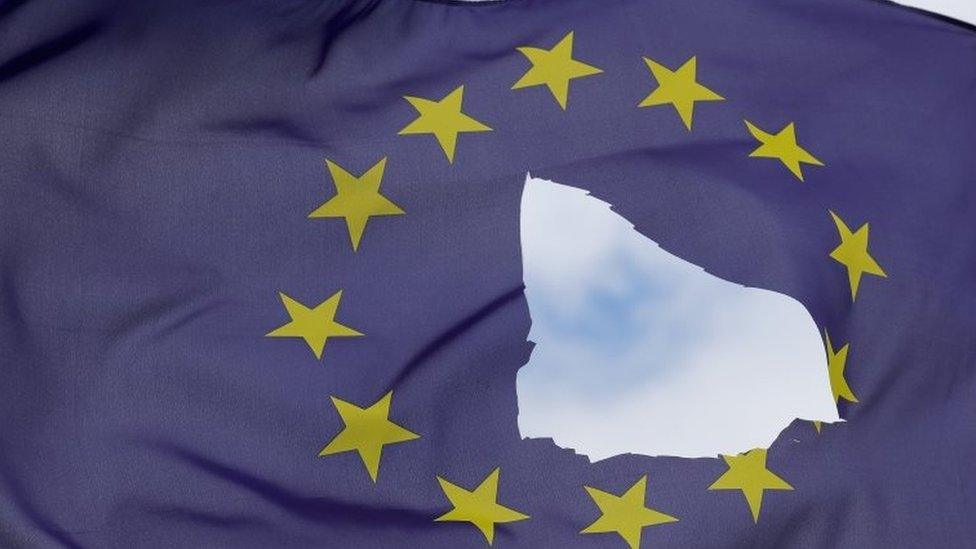Brexit vote: Bitter exchanges in EU parliament debate
- Published
Shouts greeted Jean-Claude Juncker as he said "I am not a robot, I am not a bureaucrat"
The European Parliament's first debate on the UK's vote to leave has been marked by bitter exchanges.
A central figure in the Leave campaign, UK Independence Party (UKIP) leader Nigel Farage, was booed, called a liar and accused of using "Nazi propaganda".
Mr Farage shot back that the EU itself was "in denial".
UK Prime Minister David Cameron is meeting leaders of the other 27 EU states for the first time since Thursday's referendum.
"I'll be explaining that Britain will be leaving the European Union but I want that process to be as constructive as possible," he told reporters, external before the summit's working dinner in Brussels.
An EU official close to the talks told BBC News the mood was "very, very serious" and a question mark hung over the UK's next presidency of the EU, due to begin in the second half of next year.
Jean-Claude Juncker: "If you are out, you are out'
"The leaders are very interested in hearing the UK's timeline but everyone knows Cameron won't trigger Article 50 [the first formal step in the withdrawal procedure]," the source added.
The announcement of Mr Cameron's replacement as leader of the Conservative Party, and thus prime minister, is not due now until 9 September, with 12:00 BST Thursday as the deadline for nominations.
European Commission President Jean-Claude Juncker warned against delay in starting the exit process: "I don't think we should see any shadow-boxing or any cat-and-mouse games. It is clear what the British people want and we should act accordingly."
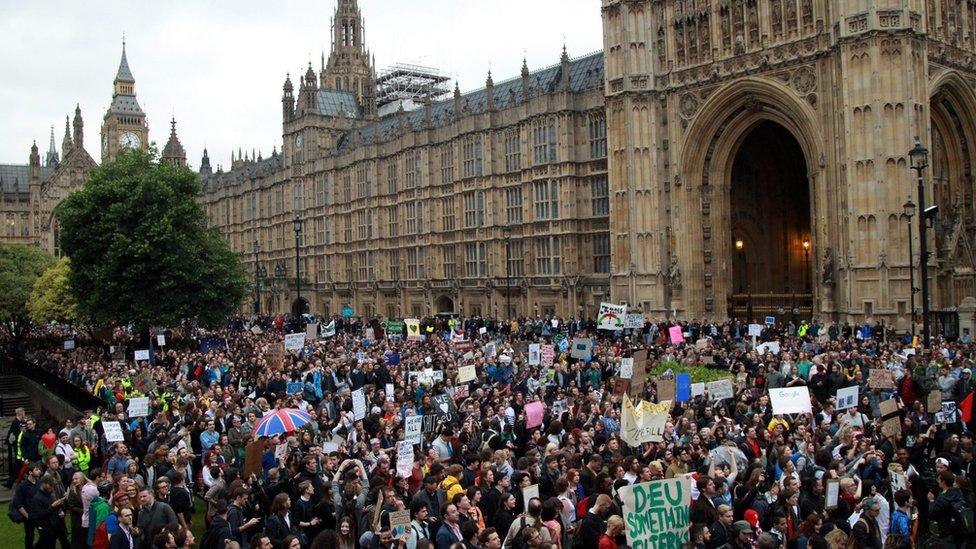
People went to Westminster to show their support for the EU
Hundreds of people attended a pro-EU rally in London on Tuesday - the initial meeting in Trafalgar Square was abandoned over fears of crowd numbers, but those who did gather moved down Whitehall to continue their protest outside the Houses of Parliament.
Demonstrators chanted "Down with Boris" - referring to senior Tory Boris Johnson - and slogans against UKIP leader Nigel Farage, both of whom were two of the leading figures in the Brexit movement.
And hundreds also turned out in Cardiff, at an event which included speeches from Plaid Cymru leader Leanne Wood and racial equality activist Shazia Awan.
Spokeswoman Beca Harries, said: "Cardiff voted to remain in the European Union, and we felt it was important to mark that and say, these results don't represent what we believe in."
Other rallies in Manchester and Oxford were abandoned over "safety fears" and a protest in Liverpool was postponed until next week.
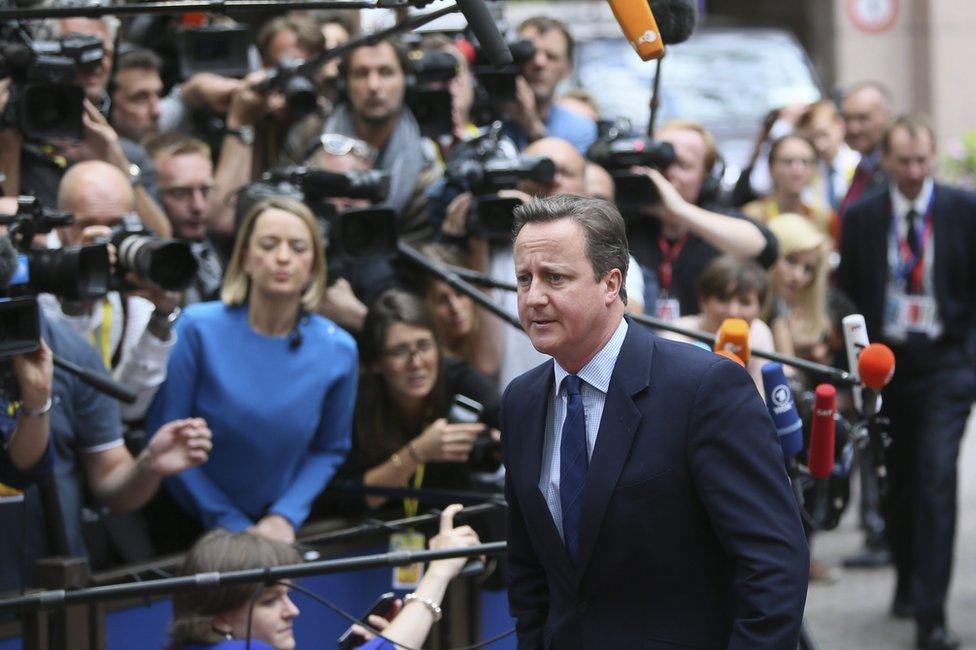
Mr Cameron had to pass a wall of press cameras to breach the summit venue...
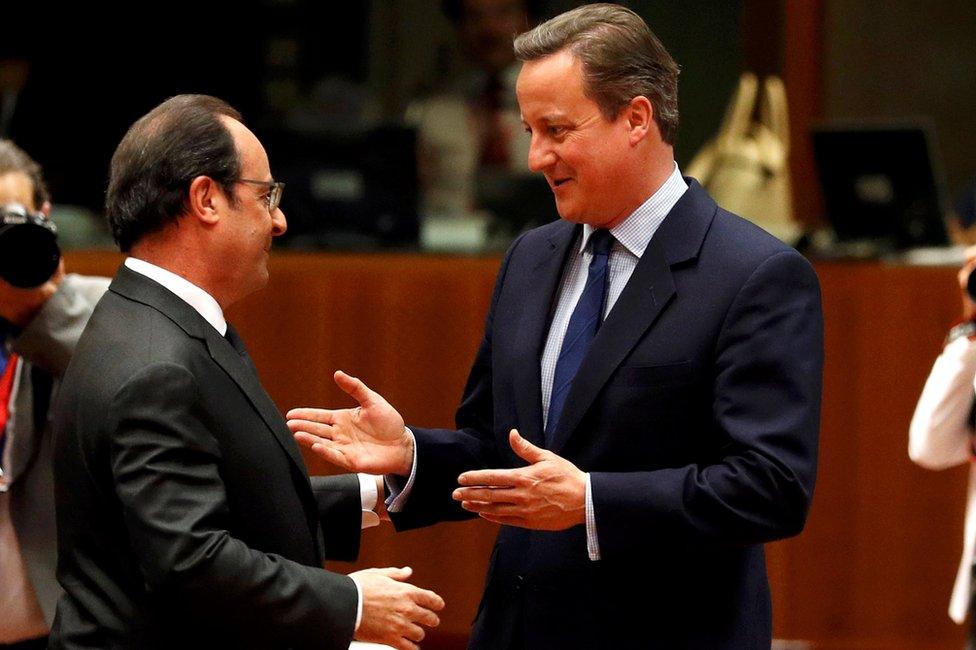
...and was visibly more relaxed inside, chatting to French President Francois Hollande and other leaders
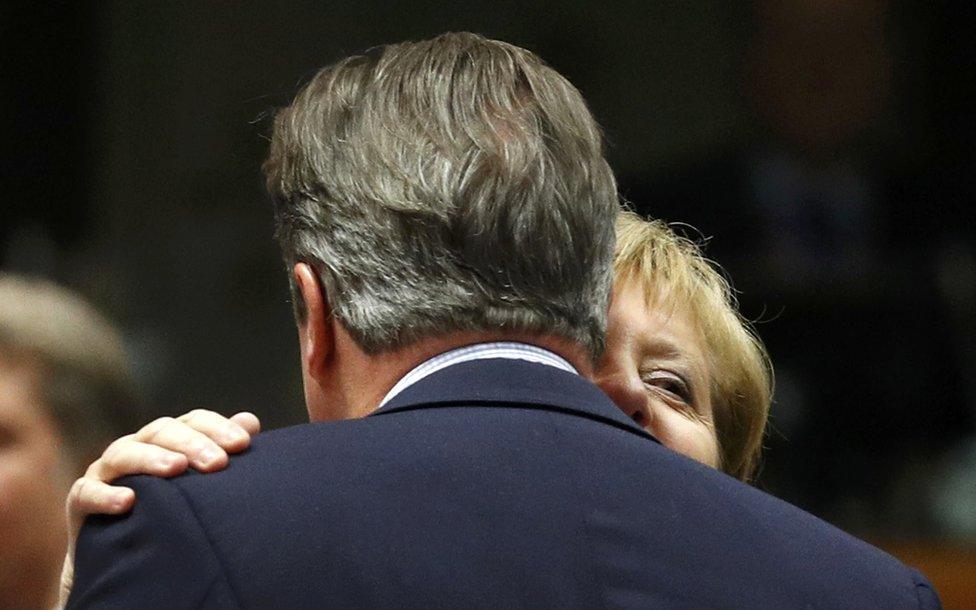
German Chancellor Angela Merkel offered him an embrace
'Why are you here?'
The European Parliament passed a motion urging the UK to start the exit process by triggering Article 50 immediately.
Opening the session, Mr Juncker said the will of the British people must be respected, prompting shouting and clapping from Mr Farage.
"You were fighting for the exit, the British people voted in favour of the exit - why are you here?" Mr Juncker responded, to applause from others in parliament.
Farage tells EU Parliament: 'You're not laughing now'
He accused Mr Farage of lying about using the UK's EU contributions to fund the country's National Health Service, saying he had "fabricated reality".
Belgian ex-Prime Minister Guy Verhofstadt said Mr Farage had used "Nazi propaganda" in the referendum campaign, referring to a poster showing lines of refugees.

Jeers, insults and applause, by Bethany Bell, BBC News, Brussels

This was a stormy and deeply emotional debate, with accusations and counter-accusations of lying.
Britain's vote to leave the EU has divided and shaken the European Parliament. This is a watershed moment.
Many MEPs expressed sadness at losing the UK. There was a standing ovation for the UK's outgoing Commissioner, Lord Hill.
But there was also a strong sense of defiance, as well as concern for the future. There were calls for unity, for reform, and the need to connect to Europe's citizens.
For the Eurosceptic groups, this was a sweet moment of victory. Something that once appeared almost impossible has become reality.

Manfred Weber, chairman of the European People's Party group told Mr Farage: "Stop this populist Brussels bashing."
Hitting back, Mr Farage told parliament that they were "in denial".
He said hardly any of the MEPs had ever done a proper job in their lives, or created one.
"We now offer a beacon of hope to democrats across the European continent," he said. "The UK will not be the last member state to leave the EU."

Brexit in Brussels: quotes from Tuesday's debate
Alyn Smith MEP: "Scotland did not let you down. Please... do not let Scotland down now"
"I hope the outcome of the referendum will work as a wake-up call for Europe": Greek Prime Minister Alexis Tsipras
"The fact that fragmentation is no longer unthinkable, should gravely concern us all": Dutch Defence Minister Jeanine Hennis-Plasschaert
"Please, remember this: Scotland did not let you down. Please, I beg you, do not let Scotland down now": Scottish MEP Alyn Smith
"The European Union cannot become a hostage to the internal party politics of the [British] Conservatives": Italian MEP Gianni Pittella
"Only triggering Article 50 immediately can stop this - 27 member states should not wait for a disorientated Tory party to get its act together": Belgian MEP, and leader of EU Liberal group Guy Verhofstadt
"We in the North of Ireland are not bound by the UK vote... The last thing the people of Northern Ireland need is a new border with 27 member states": UK MEP Martina Anderson (Sinn Fein)

Political recriminations over the referendum continued on Tuesday at Westminster, where MPs from the main opposition Labour Party overwhelmingly backed a motion of no-confidence in leader Jeremy Corbyn.
On the financial markets, however, pressure eased after two days of turmoil, with the FTSE 100 share index closing higher.
But European Central Bank president Mario Draghi told Tuesday's meeting of EU leaders the bank's forecast for growth in the eurozone over the next three years was being cut by roughly 0.3 to 0.5% because of the prospect of Brexit, EU sources say.
French National Front leader and MEP Marine Le Pen told BBC Newsnight the UK's Brexit vote was "the most important moment since the fall of the Berlin Wall".
Marine Le Pen said the British had "fired the first shot"
In a speech to the German parliament before leaving for Brussels, German Chancellor Angela Merkel said the EU was strong enough to survive without the UK.
She said she respected the result and warned the bloc would not tolerate British "cherry-picking" when it came to negotiations.
The remarks are Mrs Merkel's toughest words yet, with concerns in the German government that other EU members could follow Britain's move, the BBC's Berlin correspondent Jenny Hill says.
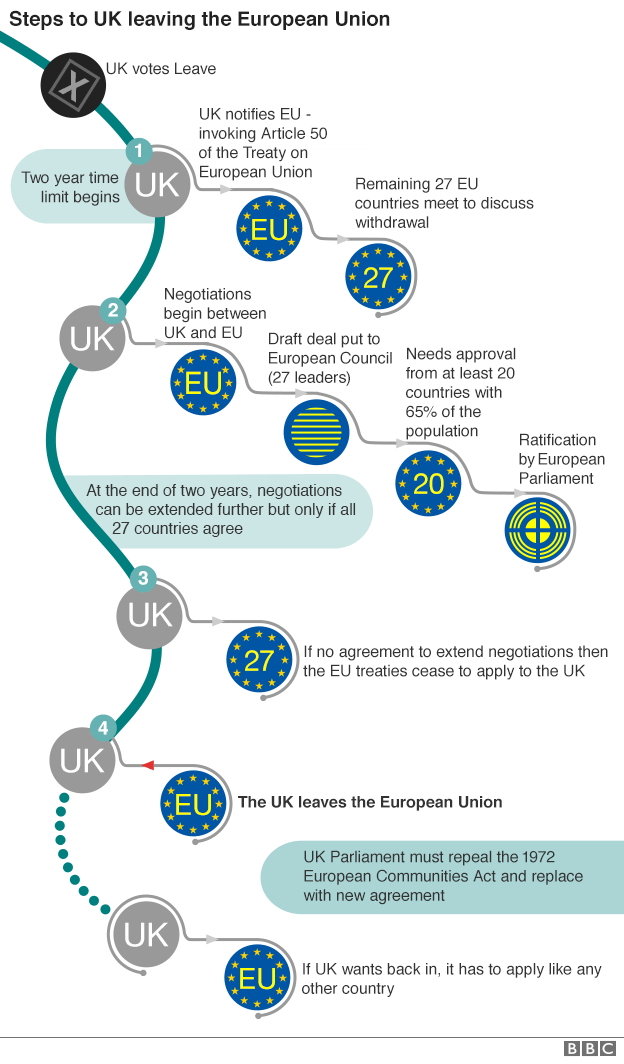
- Published19 June 2016
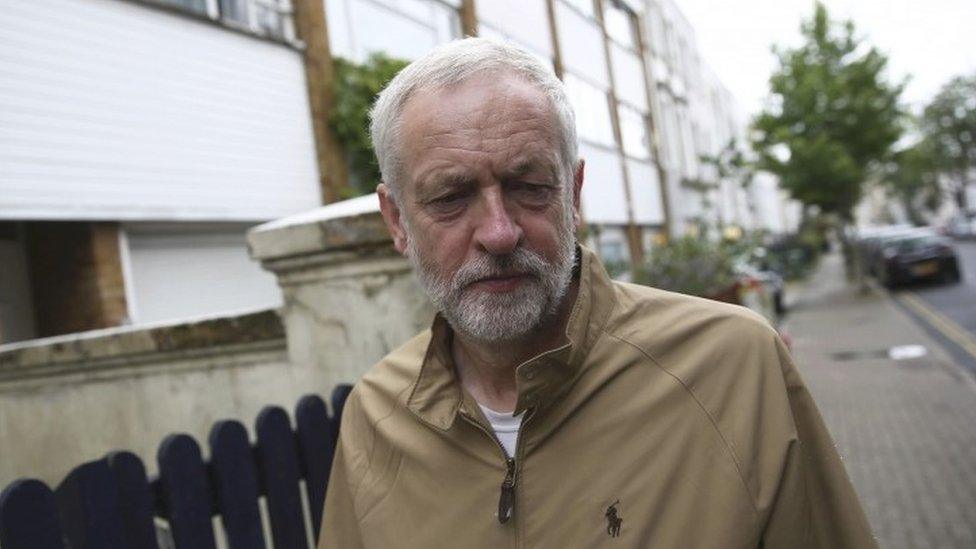
- Published28 June 2016
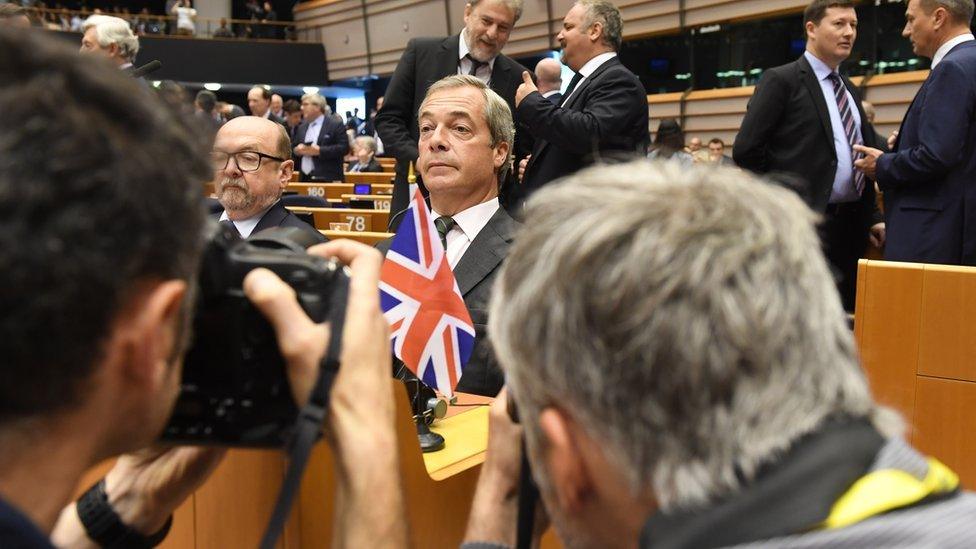
- Published27 June 2016
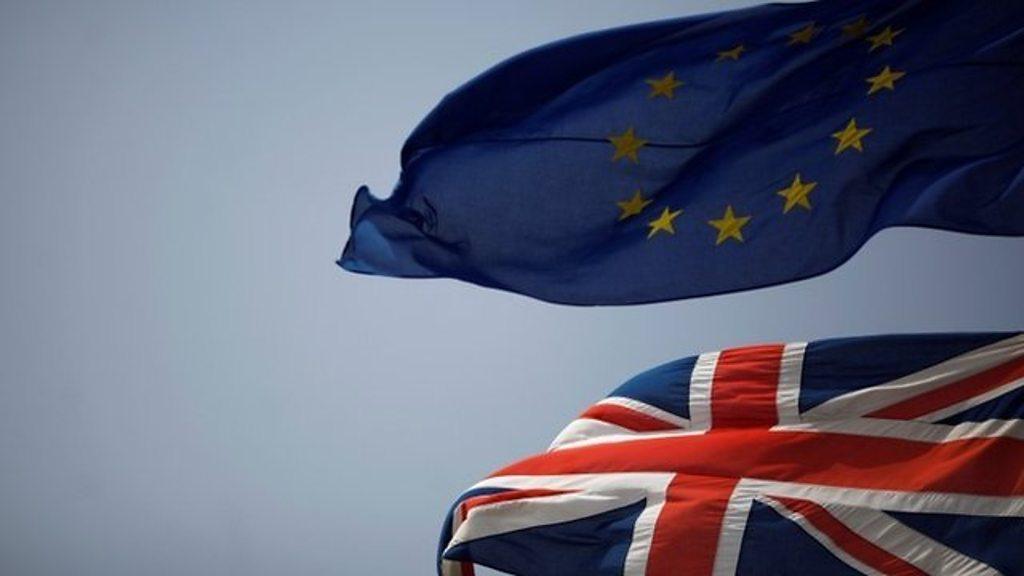
- Published28 June 2016
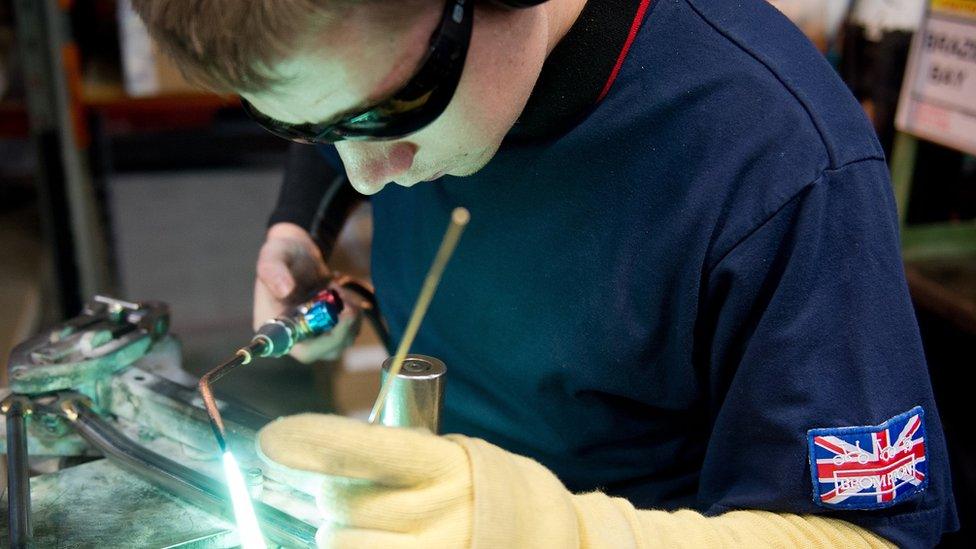
- Published28 June 2016
